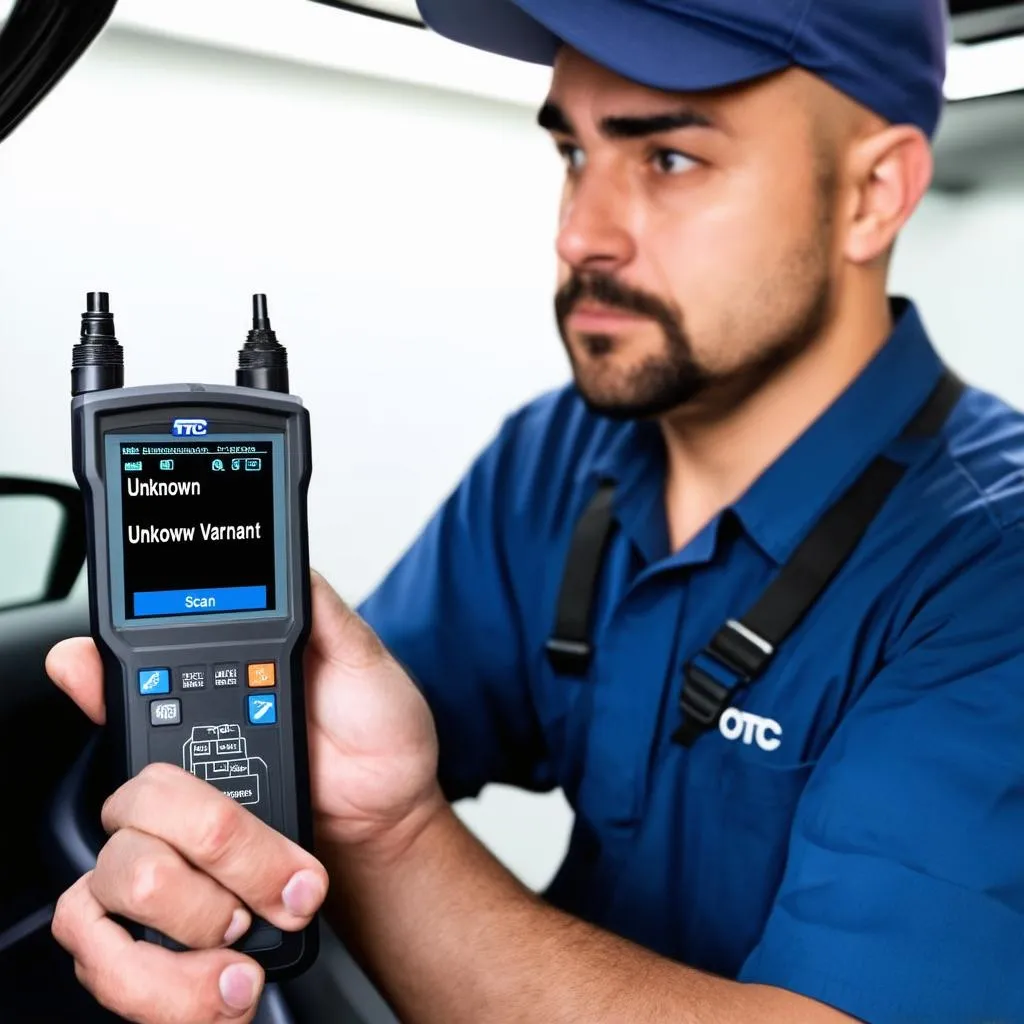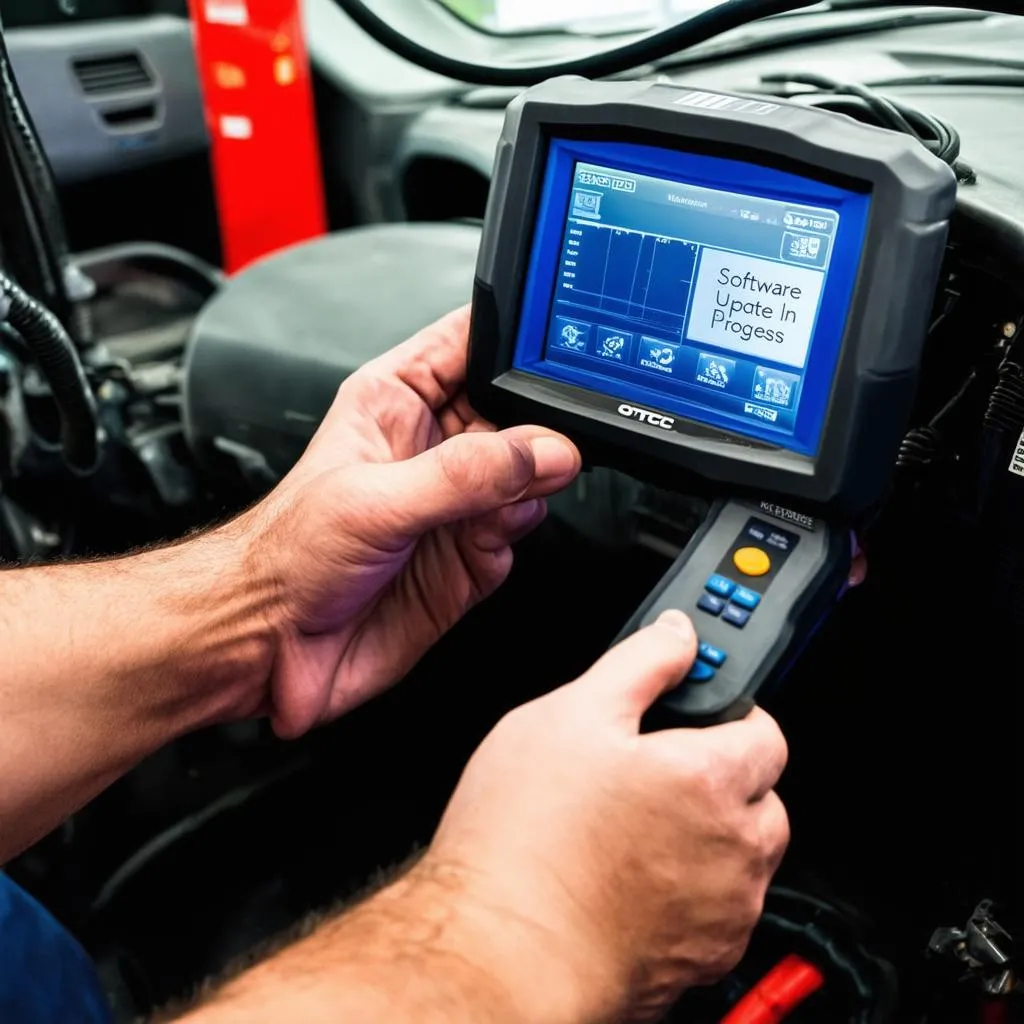“My OTC scan tool won’t recognize my car’s variant!” Sound familiar? This frustrating issue plagues DIYers and even seasoned mechanics. Imagine this: You’re working on a 2018 Audi A4 in your garage on Elm Street, California. You hook up your trusty OTC scan tool, expecting a smooth diagnostic session, but instead, you’re met with an “Unknown Variant” error message. What gives?
Understanding the “Variant” Roadblock
Before we dive into solutions, let’s understand what we mean by “variant” and why your scan tool might be throwing a fit.
What Exactly is a Car Variant?
In simple terms, a vehicle variant is like a sub-model. It refers to the specific combination of engine, transmission, and other key components in your car. For instance, a 2020 BMW 3 Series can have variants like the 330i, 330e, or M340i, each with a different engine and drivetrain setup.
Why Scan Tools Struggle with Variants
Scan tools communicate with your car’s computer (ECU) to diagnose issues. Sometimes, manufacturers introduce subtle changes to ECUs and software even within the same model year. If your scan tool’s software isn’t updated with these changes, it can fail to recognize your car’s specific variant, leading to that dreaded error message.
 OTC scan tool error message
OTC scan tool error message
Troubleshooting “Variant Not Identified” Errors
Now, let’s get down to brass tacks and fix this! Here’s a breakdown of what you can do:
1. Double-Check the Basics
- Confirm Vehicle Information: It seems obvious, but make sure you’ve entered the correct year, make, model, and engine size into your scan tool. Even a small typo can throw things off.
- Verify Connection: Ensure the scan tool is securely connected to your car’s OBD-II port, usually located under the dashboard on the driver’s side.
2. Update Your Scan Tool
- Check for Updates: Most reputable scan tool manufacturers release regular software updates to address compatibility issues and add new vehicle variants. Connect your tool to a computer and visit the manufacturer’s website to download and install the latest updates.
3. Consult Technical Service Bulletins (TSBs)
- TSBs as Clues: Manufacturers issue TSBs to address known issues, including software glitches that can cause variant identification problems. Search online databases for TSBs related to your car’s make, model, and year. You might find a software patch or specific instructions to resolve the issue.
4. Contact the Experts
- Don’t Give Up: If the problem persists after trying these steps, it’s time to call in the cavalry. Contact the scan tool manufacturer’s technical support or a qualified mechanic specializing in your car’s make. They may have encountered and solved this specific problem before.
 Mechanic updating scan tool
Mechanic updating scan tool
FAQs – Common Questions About Scan Tools and Variants
Q: My scan tool used to work fine. Why is it having trouble now?
A: As mentioned earlier, manufacturers frequently update vehicle software. Your scan tool might have worked flawlessly a year ago, but a recent software update to your car could be the culprit.
Q: Do I need to buy a new scan tool if mine can’t identify my car’s variant?
A: Not necessarily! Updating your scan tool’s software often solves the problem. If updates aren’t available or don’t work, explore other options like contacting technical support or a specialized mechanic before investing in a new tool.
Q: Are certain car brands more prone to variant identification issues than others?
A: While it varies, European car brands, particularly German manufacturers like Audi, BMW, and Mercedes-Benz, are known for frequently updating their vehicle software. This can sometimes lead to compatibility hiccups with scan tools.
Need More Help?
We understand the frustration of encountering technical roadblocks. If you’re still struggling with your OTC scan tool or have other automotive diagnostic questions, don’t hesitate to reach out. Our team of experts is here to help! Contact us on WhatsApp at +84767531508 for 24/7 support.
We’re passionate about keeping you on the road and empowering you with the knowledge to tackle any automotive challenge.


